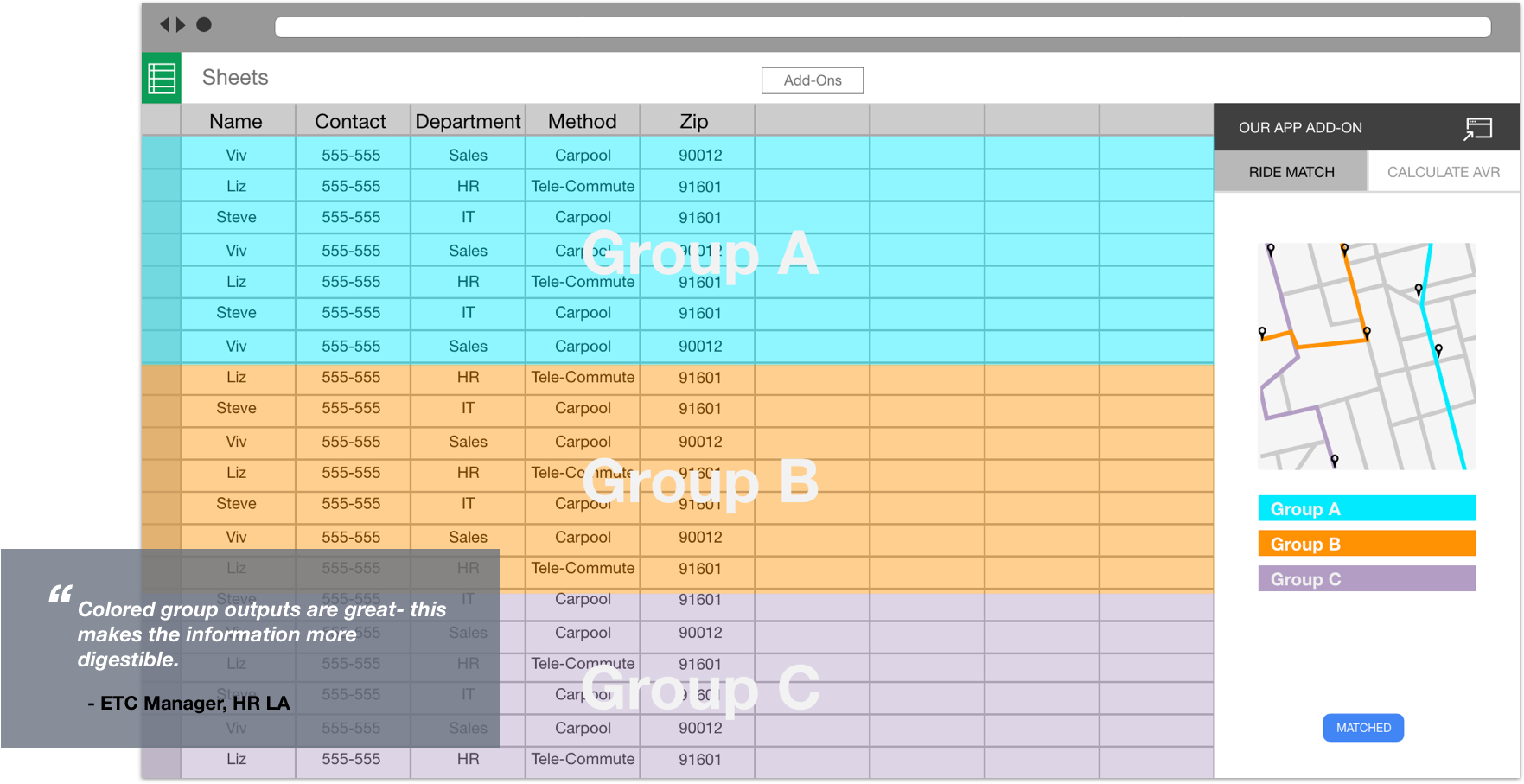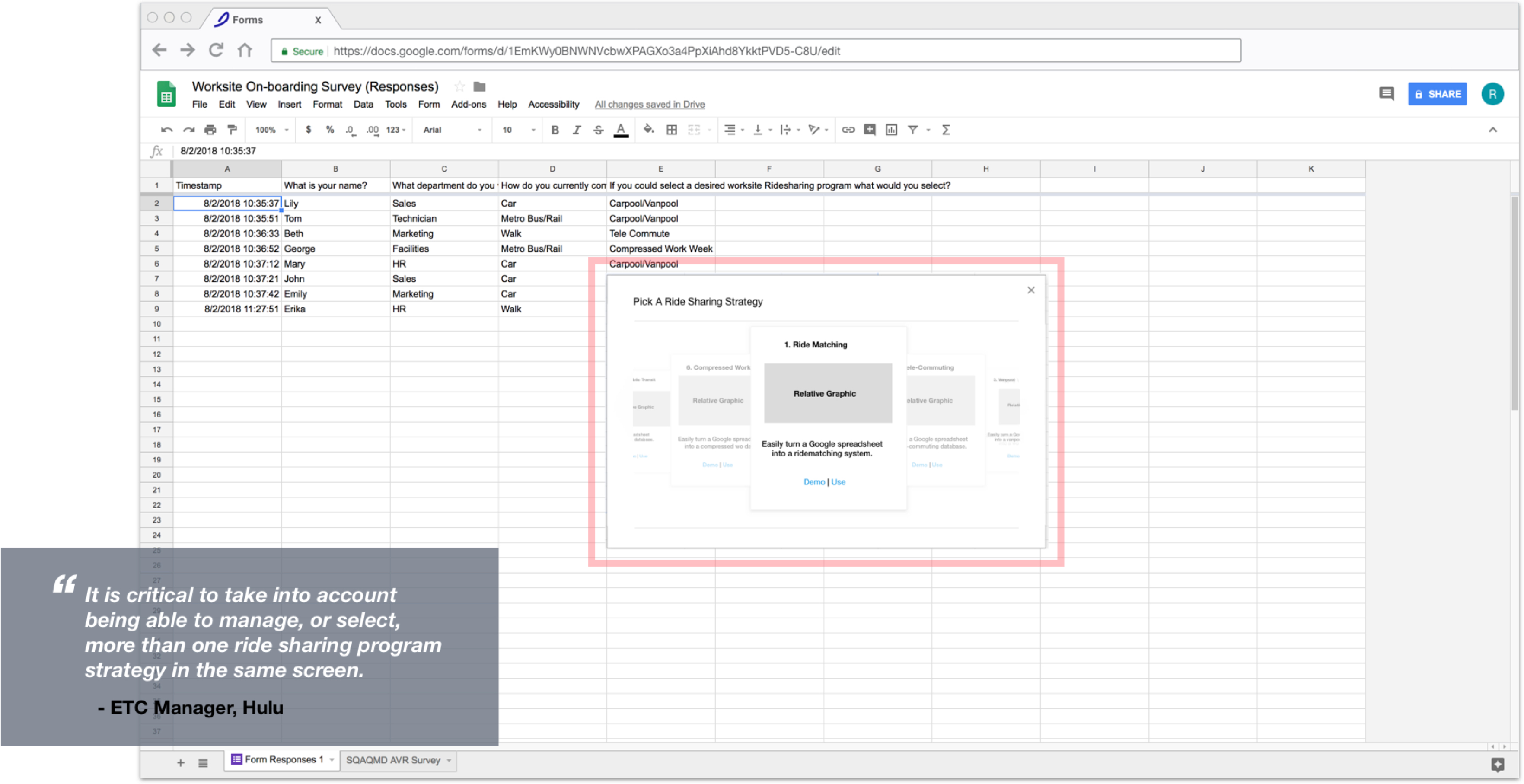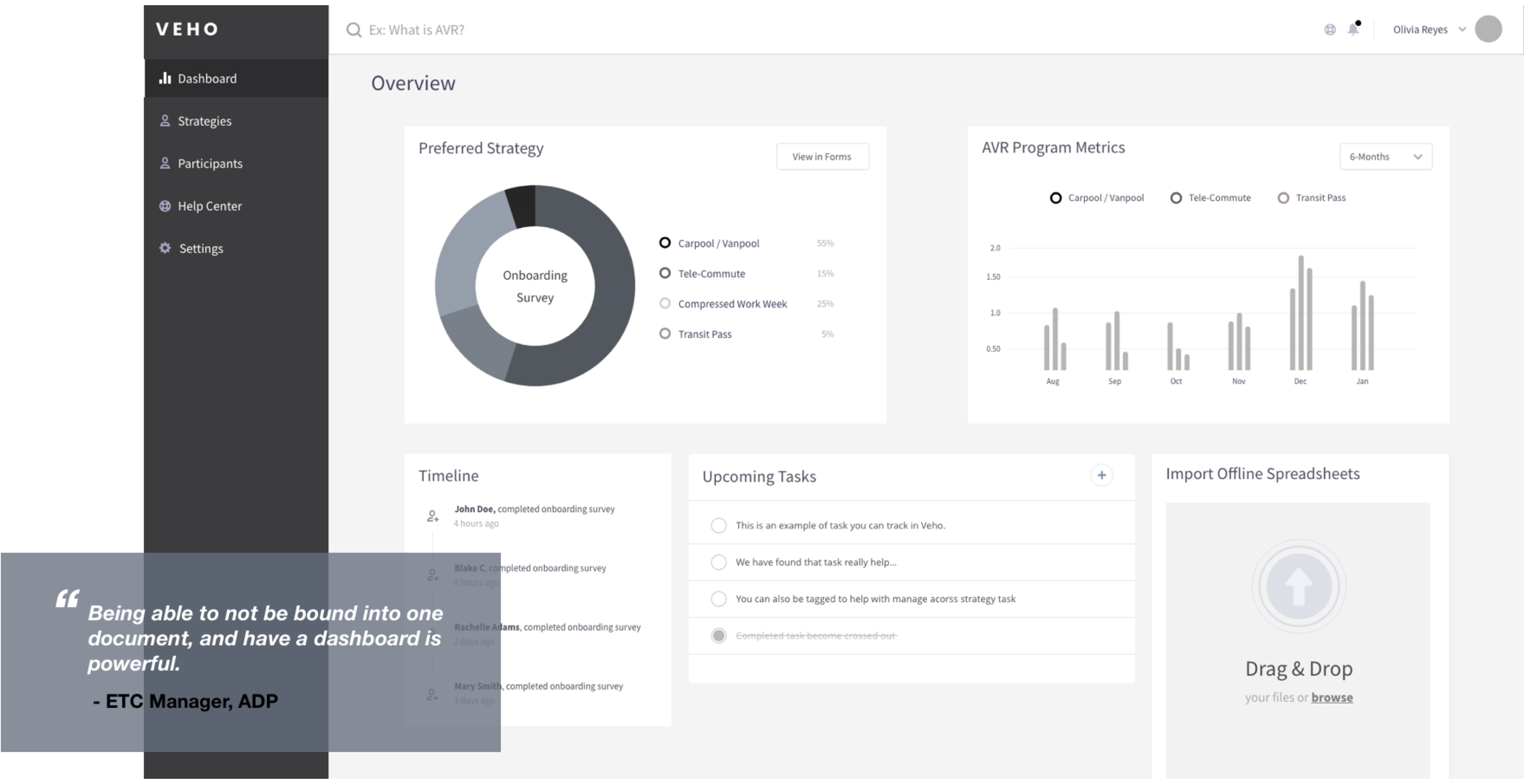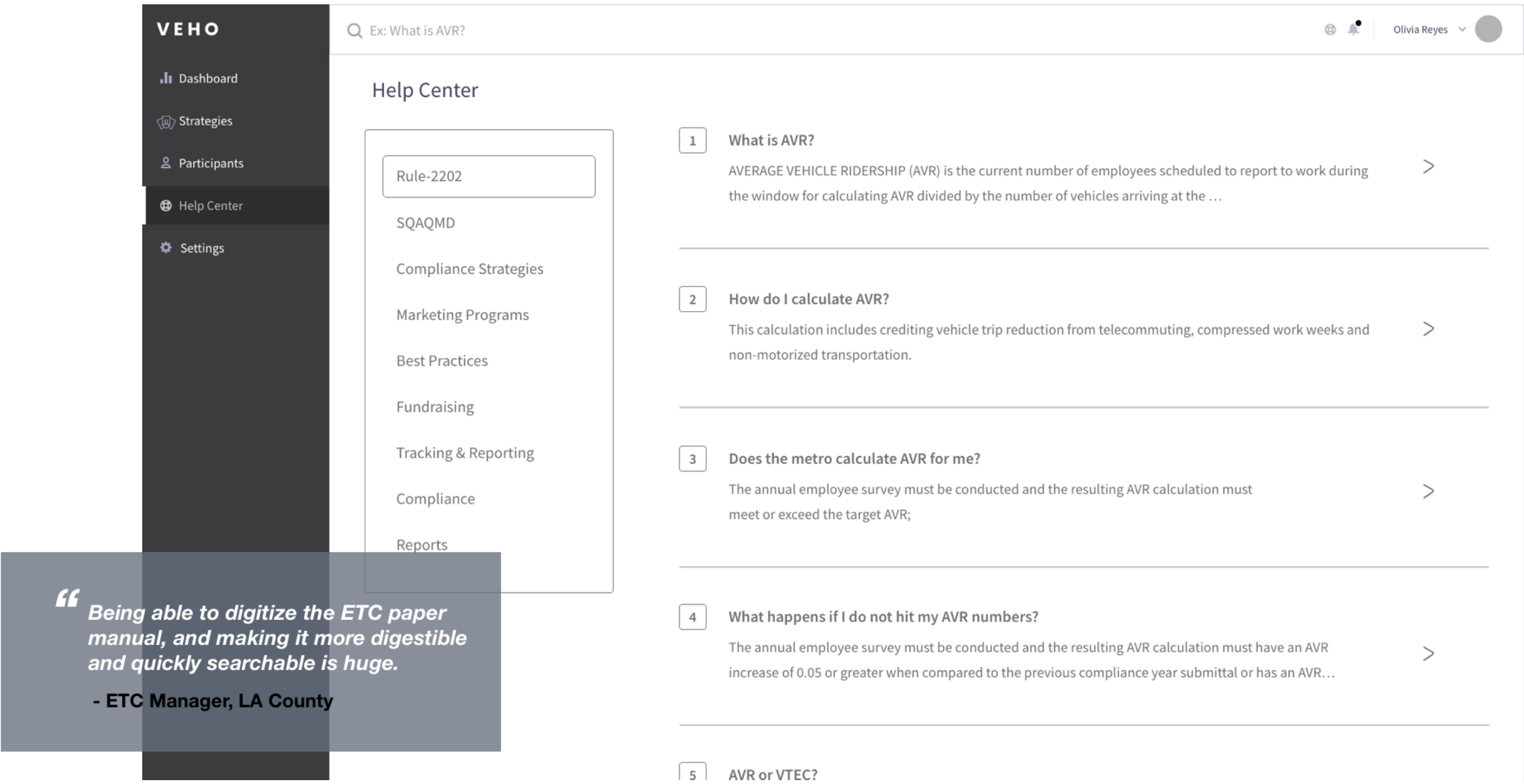Veho
An enterprise platform to help companies solve their commuter problem.
Status Quo
Los Angeles recently topped INRIX’s Global Congestion Ranking for the sixth straight year, with drivers spending over 102 peak hours in congestion annually.
Regulations stemming from the California Clean Air Act of 1988 have set in place a series of measures to reduce air pollution and traffic in Southern California.
Worksites in Los Angeles County with 250 or more employees must comply with the Employee Commute Reduction Program (ECRP).

Rule 2202 Compliance
There are three main categories of strategies to meet the County's Rideshare Program. Each of the categories are further divided into strategies. Five strategies per category must be implemented to receive ECRP Plan approval.
Marketing Strategies
- Rideshare Website
- Commuter Info Kiosks
- Employee Rideshare Events
- Rideshare Meetings
Support Strategies
- Rideshare Matching Service
- Commuter Choice Program
- Flex Time Schedules
- Guaranteed Return Trip
Direct Strategies
- Compressed Work Week
- Time Off With Pay
- Telecommuting
- Transit Subsidy
Rule 2202 is a legal mandate and all worksites in the County with 250 or more employees are required to comply with all provisions of the regulation.
An Empowering Outcome
Our goal from the beginning was to propose a thoughtful solution. Through conversation, testing, and deep exploration, we were able to present our stakeholders with a compelling response to their challenge of meeting rideshare regulations in Los Angeles County.
- Ridematching (MVP) almost entirely automated
- ETC workflow reduced to two programs
- Support / education resources accessible
Foundational Research Confirmed Opportunity
Two private and one public company currently corner the market for rideshare solutions. Cost is a barrier for companies and none of the platforms offer a comprehensive solution to meet ECRP guidelines.

We identified the ecosystem and the stakeholders involved.




Critical Takeaway
During discovery we took a few different approaches for capturing our primary and secondary research. Here are some key takeaways:
- Ridematching is the largest hurdle for ridesharing programs
- Current workflow is inefficient and unique from user-to-user
- ETC's oversee a challenging effort in order to comply with public air quality standards
- Los Angeles County Rideshare Program is pushing 2020 initiative

Making the case for a new offering
Clarifying the connection between business goals and user needs through Goal-Directed Design process.

Strategic Statements - Inspiration, Aspiration and Purpose
Mission ETC’s will empower institutions within the Greater Los Angeles area, and beyond, to contribute to a cleaner environment for all.
Vision Streamlined implementation and management of rideshare program for Employee Transportation Coordinators.
Value Proposition Provide a unique set of tools and resources that strengthen the workflow and efficiency of Employee Transportation Coordinators in South Coast Air Basin.
Lean Business Canvas

Persona and Requirements

Current Workflow

Usability Studies
For our usability studies we employed a few methods, one being in-person usability studies, the other being remote sessions (via click-through prototype).



Low and Mid-Fidelity Screens
Solution
Align and combine multitude of ETC tasks into one combined flow.

Information Architecture

Final Scenario
Focus on ridematching participants.


Dashboard Functionality
The dashboard is divided between strategy selection, average vehicle ridership, a timeline, task management, and spreadsheet import.

Onboarding Screen and Mid-Fidelity Prototype




